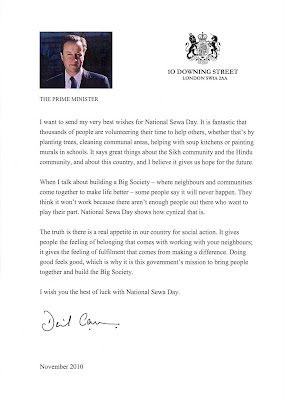Diwali. We Hindus call it the Festival of Light. According to legend, it commemorates the return of Lord Ram to Ayodhya (with his wife Sita, brother Laxman and Hanuman-ji in tow) after 14 years of exile having just defeated the evil Lord Ravana. It is believed that the people of Ayodhya welcomed the homecoming prince with showers of lit arrows in the sky – hence the festival of light.
On a more philosophical note, my good friend and sage (he even has the white hair to prove it!), Rupin Vadera of the Chinmaya Mission, has enlightened me as to the true meaning of Diwali as follows: “In short, Lord Ram represents the pure intellect, Sita-ma the pure mind, Laxman detachment and Hanumanji the pure thought.
After killing the ten headed demon (signifying the 5 senses and 5 organs of action) i.e. a human who has mastered his senses, Lord Ram makes his way back to Ayodhya. The intellect and mind are united, with detachment by his side, and are served by the pure thought.
Such a person will find his path lit by the light of knowledge. The arrival of Lord Ram at the gates of Ayodhya (land of peace) is marked and celebrated by the festival Diwali.”
Diwali signifies different things to different communities across the world. For the business community it marks the beginning of a New (financial) Year and prayers are offered to Shree Ganesh and Goddess Laxmi. The Jain community believes Lord Mahavira, the Founder of Jainism, attained Nirvana (Salvation) on this day. Sikhs celebrate Diwali to express joy at the return of their sixth Guru, Guru Hargovind, to Amritsar in 1620, along with 52 Hindu Kings, who were imprisoned by the Mugal Emperor, Jahangir.
My first proper experience of Diwali was when I first moved to Delhi as a teenager. Diwali was not celebrated in the UK as it is nowadays. Wow I was blown away! Firstly, Diwali night is the climax of a festival season that goes on for a month and more encompassing Navaratri, Dussehra, Ram Leela celebrations. It's a fabulous time of year to be in India.
Secondly, until my first Diwali in India, fireworks to me meant Guy Fawkes night. Let me tell you,bonfire night UK style did not prepare me at all for the explosive experience that is Diwali in India. A true extravaganza.
It is also tradition on Diwali to exchange gifts with loved ones and friends.
So What is the Spirit of Diwali?Nowadays of course, Diwali in the UK is a big event. Parades, parties in Trafalgar Square and this year even the House of Commons held a Diwali party (with both Nick Clegg and Ed Miliband in attendance).
Fireworks, pressies and partying aside though, once you step back you realize what Diwali is about. Like all Indian festivals it’s about family and community. Diwali is one of the biggest days in the Indian calendar for families and communities to get together – to forget their every day endeavours and pressures to spend time with each other – to re-energize relationships and strengthen bonds. To start a new year refreshed and re-invigorated. To show they care for each other.
..and it is this Spirit of Diwali that can be used to rebuild the feeling of community that one feels is so very much missing in the world today. Everytime I open the newspaper or switch on the TV I seem to read of acts of unimaginable maliciousness and violence between humans. Conflict seems to be everywhere. It seems pretty clear to me that society is suffering from a severe disconnect. Little wonder. We spend most of our everyday lives talking into mobile phones or staring at LCD screens. We no longer have time for our fellow humans, preferring the company of machines (and anyone who’s watched the Terminator movies knows where that could lead!).
We have to ask ourselves, what kind of world do we want to live in? What can we do to make it a better place for us and our children? Will we become the victims of our own complacence and apathy?
Join us on 21 November 2010 to start making a difference.
All the folks from National Sewa Day would like to wish all our supporters and sponsors a very merry Diwali and wishing you every success in the New Year.
Arup Ganguly
Chairman – National Sewa Day
